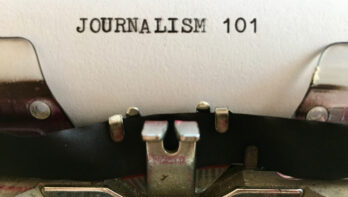With one hand my driver aimed her vintage VW through the maze of mid-town Manila traffic, and with the other she talked. She was an editor and a missionary, and she took the choking exhaust, the steamy heat and the curb-to-curb traffic as all part of the job.
She must have a book full of experiences, I thought–at least an article–so I asked her if she’d like to do a piece for a magazine.
“Oh,” she protested, “I don’t know if I could write.”
Startled, I exclaimed, “But you’re an editor!”
I know that every editor is not an accomplished creative writer, but it seems to me that the very nature of the task demands the ability to write a clear, cogent paragraph and have an elementary knowledge of form. Writing is basic to our business. We may not achieve the style of an E.B. White, nor have the imagination of a C.S. Lewis, but we must be able to arrange the words in ways that clearly express our ideas.
The danger for us, however, and the first point of this piece, is what I call the Pilate complex. Because I am the editor and there is no one to tell me differently, then what I have written, I have written.
We never arrive as writers. Every writer needs a coach. Or at least an editor. My college writing professor filled every available white space on the page of my papers with red-pen scratchings and moaning that often resisted translation. The first editor I worked for was no less critical. Nothing rolled out of my typewriter and went unscathed to press. Frankly, I didn’t appreciate it until I became The Editor and there was no one to tell me whether I had produced a classic or a piece of drivel. Instinctively, I knew I was in trouble.
“It is depressing,” wrote Thomas Merton, “that those who serve God and love him sometimes write so badly, when those who do not believe in him take pains to write so well.” True, but having acknowledged our obligation to work at our craft to the best of our ability, we can rest in knowing that God does bless less-than-award-winning writing. While good style helps the writing go down easily, and form aids the mind to grasp the ideas, I believe it is the heart of the writer that makes the difference.
Use your talent, large or small.
Practice, practice, practice! Seek critcism. Bleed over the writing. But know that if your heart is tuned to. what the Spirit is saying, your writing may lack grace, or even grammar, but God may still use it. The writings of the saints would not all win Pulitzer prizes nor National Book Awards.
On occasion I have read a piece of awkward or amateurish prose and gained the distinct impression that while the author couldn’t write for sour apples, he or she knew God.
Therein lies hope for us all!
— by Ron Wilson
Wilson is the former executive director of the Evangelical Press Association.





